by Nancy Hastings Sehested
Mark 2:1-12
Jesus was in demand as he made his way into the villages along the Sea of Galilee. After a dizzying schedule of healing the sick and casting out demons, he arrived in the fishing village of Capernaum. There it was reported that he was at home. The home was easy enough for a crowd to find. It was probably one or two rooms, made of the dark stone of the region stuck together with mud. The thatched roof of straw and clay was made strong with crossbeams of wood.
Then as now people were desperate for healing and inspiring teaching. The people smushed in as close as possible, but they couldn’t all get in the doorway. While Jesus was teaching, four people arrived carrying a paralyzed man on a pallet. They wanted to place the man in front of the healer Jesus, but there was no way to get in.
Unwilling to give up, the carriers took desperate measures. They hauled the man up the outside steps to the rooftop, “unroofed the roof”, made an opening through the mud and straw, and lowered the man on the mat into the crowd to Jesus.
In our Lenten prayer group this past week, we had a good time imagining this scene wondering how it might’ve happened. Were the four yelling at each other, “Don’t drop him!” “This way!” “Be careful!”
Or maybe, as one person imagined, the man on the pallet was the one yelling. “Watch what you’re doing! There’s no way I can get through that opening. I’ll fall. I’ll break my neck. Put me down. Forget about it. This’ll never work.”
Or maybe it was the friends who were reluctant all along and it was the man on the pallet who was insistent. Maybe the pallet man was the one saying, “Come on, guys. Just get me to Jesus. I know he can help. He’s my best hope.”
Or maybe his friends were saying to the pallet man, “Really, man, we’re worn out by your condition. We can’t bring you food and water one more day. We can’t hear you blame everyone and everything for your misery one more time. We’re getting you to healing. We don’t know if it’ll work, but it’s worth a try. We’re taking you to see Jesus.”
One person in our prayer group imagined that she was holding onto one end of the mat thinking it would never work and needing another person to shout some encouragement to keep on going. “Come on! We can do this! We got it! It’s gonna work!” How many times have we just about given up on doing hard things when someone gives us the nudging word of strength we need. “Keep on! We’re gonna make it!”
I like to imagine it was a team of enthusiasm that dug through that roof. After all, the word “enthusiasm” comes from en, that means “within,” and “theos”, meaning “god.”
Maybe their enthusiasm was making room for God in a tight space of narrowed hopes.
Jesus may not have known the back story. It didn’t seem to matter in the moment. However they got there, the friends made a way in a desperate situation for their desperate friend. Even through the dirt falling through the roof Jesus could see compassion coming down. When he saw their faith, he said to the man, “Son, your sins are forgiven.”
Forgiveness. That was the first word? Didn’t it need to come with a bit more clarification? Maybe Jesus should’ve said, “Son, I know that people have told you that you’re to blame for your paralysis, or it’s the fault of the sin of your parents or your own sin. But it’s just not true. You’re not to blame for illness. There’s nothing to forgive.”
But maybe Jesus knew us human beings. Even if it isn’t about personal fault, the fault line can still feel like it cuts through our own hearts and our crumpled up body confirms the diagnosis.
We’re as good as those first century people in looking for ways to assign fault, some of it justified. Whether we are to blame or not, we can feel like its us to blame. Sometimes we carry guilt that belongs to another. Sometimes we carry guilt that belongs to a whole damnable system of social ills that we’ve internalized. It can paralyze us, distort our perspective, slam us down to living our days on a tiny mat, as if we didn’t matter.
But then there are the times when we truly have messed up. We can carry the agony of guilt from some terrible choices of our own making. It’s paralyzing. It’s shaming.
Jesus said to the man without giving an explanation, “Son, your sins are forgiven.” What a word! What a release! The man dropped down a hole and landed in a whole different world from the one he’d been paralyzed in. He discovered the soft landing of forgiveness. He never could’ve made it there on his own.
What a blessing that there was a crowd of folk around to witness it! Some were awestruck by it all.
And there were also some fuddy-duddies. The biblical story called them scribes. They just couldn’t give themselves to rejoicing when someone might be getting it wrong. We’ve all known fuddy-duddies. Sometimes they are us.
Scribes didn’t really have much power except the power of persuasion. They were interpreters of the law, the standards of the faith. Don’t we all have our standards? We know what a progressive radical Christian should look like.
The scribes wanted to get the faith right. They wanted to help people get it right. They were serious about their faith. They were on the look-out for folks who weren’t quite saying it or doing it right. They wanted to monitor and interpret everyone else’s motives and actions. What exhausting work! They lived on their own pallets that paralyzed their souls with disappointment because no one could measure up.
They wondered, “Why does this fellow speak like that? It’s blasphemy.” The scribes dissed Jesus as “this fellow.” Who’d he think he was, anyway? Only God could forgive sins. Jesus never denied the power of God to forgive sins.
Jesus caught their spirit quickly. “He perceived in his spirit…” Jesus was perceptive but it doesn’t take much for any of us to know when there are people in the room who have folded their arms and hearts.
So the story moved from a healing to a controversy. But Jesus was not rattled enough to forget who he was or what he was about. He acknowledged their questioning spirit, nodded to their concerns, “ I wonder why you’re questioning this? Which is easier to say to this paralytic man, “You’re sins are forgiven, or to say, ‘Stand up, take your pallet and walk’?” I don’t know, Jesus. But this sounds like a trick question. Both seem impossible.
Jesus said something like this: “But just so you’ll know that the Son of Humanity, the Human One…and all us human ones…have authority right here in this life to forgive, to offer forgiveness, to release each other with the power of forgiveness…just so you’ll know that healing is all tied up with both body and soul…” he turned to the man on the mat, and said, “I say to you, stand up, take up your pallet and go on home.”
And the man stood up, and immediately took up his pallet and walked before all of them on his way home. Home. He carried his pallet so he wouldn’t forget where he once was stuck. It was the carried pallet that kept him mercy-bound with a heart of compassion. People were astounded and said, “We’ve never seen anything like this.”
Our world expands through vicarious experiences. We bear witness to the unexpected surprises in one another. Through it our capacity for empathy increases. Being astounded together is one of the best things about being in community, about being human together. Wouldn’t we like to have more communal astonishment?
Wouldn’t we have liked to have seen it at Oklahoma University this last week? In response to a racist chant by a group of fraternity brothers the president of OU acted quickly to denounce their actions. That was good. There absolutely needed to be accountability for using hateful and horrific language.
But then the predictable pattern fell into place. It was the same old triple crown of punishment for a failing. Blame ‘em, shame ‘em and shun ‘em.
What if the OU president had said, “What happened is deplorable. There are consequences. We will not tolerate any language that denigrates or disrespects anyone, regardless of race, religion, gender or class. Yet we are aware that we all suffer from living within a racist and biased culture of prejudices. We are in this together. The students will remain on campus so that we can learn together. Together we will seek healing. Together we will take steps to foster a climate of forgiveness and reconciliation. Together we will resist the cultural forces that are divisive and wounding. Together we will learn about the paralyzing systems of injustice that bind and constrict us. Together we will seek to discover a mercy that unites us and strengthens us to change for the common good.”
Now that could’ve torn the roof off! That’s something that could’ve made us shout, “We’ve never seen anything like this!” But we’ve seen this again and again.
After I showed the movie The Power of Forgiveness to a small group of inmates at the maximum security prison, there was a lively discussion. Some of them acted as if their next breath depended on forgiveness but Evan stayed unusually silent. A few weeks later he asked if he could have time in the Sunday service to speak. “Just one thing, Chap. Could you bring your scissors and stand next to me when I talk?”
So in a crowded windowless room in a Sunday service at the prison I slipped a pair of scissors into my jacket sleeve and stood next to Evan. He adjusted his glasses and read his folded papers. “I’m halfway through my prison time,” he said calmly. “Eight years down, eight to go.” Then he spun out the story.
“Some of you who know why I’ve been growing my hair long. I’ve kept it to remember my girlfriend. She loved my hair, brushed it everyday.” Then he told about the terrible night when he drank too much and drove. The car crashed and his girlfriend Nora was killed.
“I have a card from Nora’s best friend saying she will take my ponytail to the place where Nora’s ashes are buried…so that the birds or squirrels can make nests with it.”
Then he asked for their forgiveness. He asked for forgiveness from a room full of failed human beings who were still on their own paralyzing pallets. “If I’ve been short with you….I apologize and pray for your forgiveness…I’ve been tormenting innocent people with my own spirit…
Do I need Nora’s forgiveness now? I don’t think so. I believe that she has forgiven me a long time ago. Do I need her best friend’s forgiveness? No, she also has forgiven me. Do I need God’s forgiveness? I believe that God has also forgiven me.
Do I need God’s guidance? Absolutely! So it seems that God’s guidance is showing me in this rough time that I need to forgive myself. If I don’t this circle will continue to expand and become an even heavier burden to bear. True forgiveness is a tough thing. I must first understand why I need this precious gift and in my heart, I must know when to give it. I must also know when to receive it. I believe now is the time to forgive myself.”
Evan turned to me. I handed him the scissors. His ponytail draped on his shoulder as he snipped away. Then holding his long locks high above his head, Evan smiled as everyone in the room stood clapping and cheering. He’d picked up his pallet and was walking home. We were all astounded. We’d never seen anything like it!
May the astonishments of forgiveness keep on coming!
Circle of Mercy Congregation
Asheville, NC
March 15, 2015


 ¶ Southern Appalachian mountaintops are now a bit safer. “After five years of action by Earth Quaker Action Team, PNC Bank announced a shift in its policy on March 2 that will effectively cease its financing of mountaintop removal coal mining in Appalachia.
¶ Southern Appalachian mountaintops are now a bit safer. “After five years of action by Earth Quaker Action Team, PNC Bank announced a shift in its policy on March 2 that will effectively cease its financing of mountaintop removal coal mining in Appalachia. ¶ According to a report by the Florida Center for Investigative Reporting, the state’s Department of Environmental Protection employees have since 2011 been banned from using terms like “climate change,” “sustainability,” and “global warming.”
¶ According to a report by the Florida Center for Investigative Reporting, the state’s Department of Environmental Protection employees have since 2011 been banned from using terms like “climate change,” “sustainability,” and “global warming.” ¶ Intercession. Shortly after this photo was taken, RJ, a member of my congregation (at right), now serving with Christian Peacemaker Teams, was taken into custody along with several others by Israeli Border Police in Hebron, Palestine, for interfering with police work (i.e., taking photos of police interaction with Palestinian citizens). All were released after an hour; but such detainments are becoming more common. That photo inspired a new poem, “
¶ Intercession. Shortly after this photo was taken, RJ, a member of my congregation (at right), now serving with Christian Peacemaker Teams, was taken into custody along with several others by Israeli Border Police in Hebron, Palestine, for interfering with police work (i.e., taking photos of police interaction with Palestinian citizens). All were released after an hour; but such detainments are becoming more common. That photo inspired a new poem, “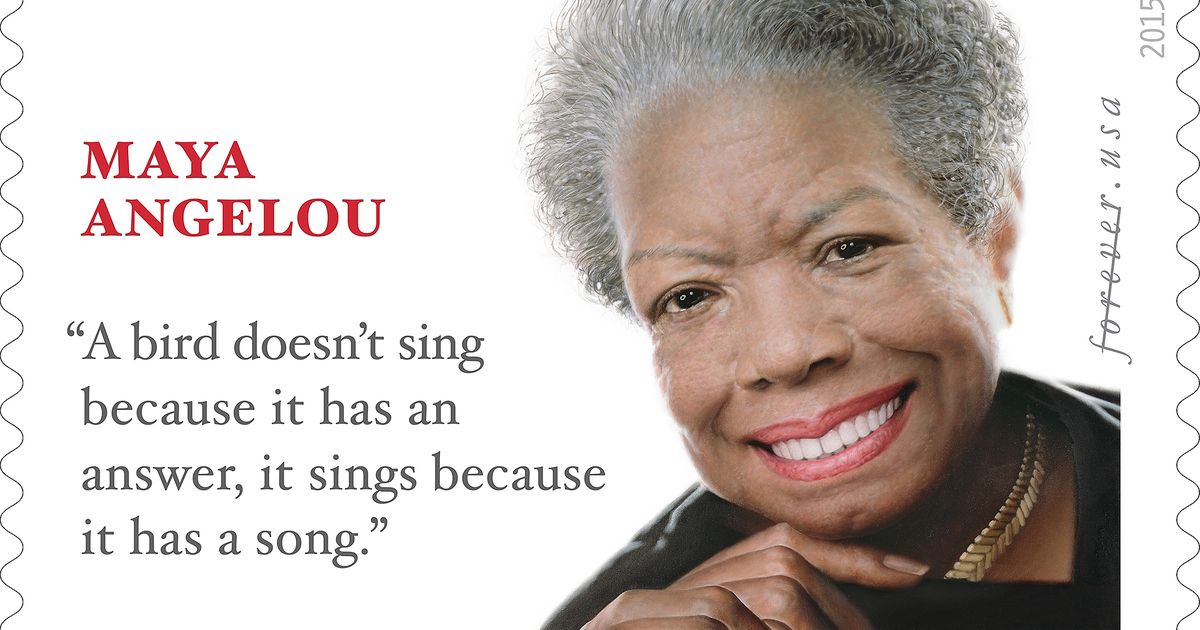 ¶ Last week the US Postal Service issued a new “Forever” stamp featuring the portrait of Maya Angelou and a quote from the first volume of her autobiography, I Know Why the Caged Bird Sings.
¶ Last week the US Postal Service issued a new “Forever” stamp featuring the portrait of Maya Angelou and a quote from the first volume of her autobiography, I Know Why the Caged Bird Sings. ¶ Tenth anniversary of Dorothy Stang’s martyrdom.
¶ Tenth anniversary of Dorothy Stang’s martyrdom.  ¶ In 2011 the Obama administration released a report, “
¶ In 2011 the Obama administration released a report, “ ¶ Ain’t I a Woman? Here’s an inspiring 3-minute reenactment by Kerry Washington of
¶ Ain’t I a Woman? Here’s an inspiring 3-minute reenactment by Kerry Washington of 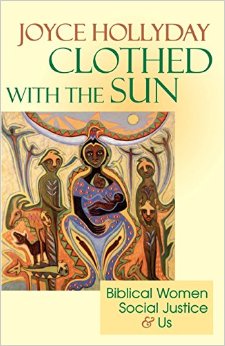 ¶ Preach it. “She [the woman pursued by the dragon in Revelation 12] is a woman of power. If she were not, the dragon would not have bothered. But he persists. Her power is a threat to all that he stands for. But her trust in a God of life and love saves and sustains her. God bears her up on wings. A dance that God began with Eve continues through time.” —Joyce Hollyday, Clothed With the Sun: Biblical Women, Social Justice & Us—still the best book of reflections on women in the Bible
¶ Preach it. “She [the woman pursued by the dragon in Revelation 12] is a woman of power. If she were not, the dragon would not have bothered. But he persists. Her power is a threat to all that he stands for. But her trust in a God of life and love saves and sustains her. God bears her up on wings. A dance that God began with Eve continues through time.” —Joyce Hollyday, Clothed With the Sun: Biblical Women, Social Justice & Us—still the best book of reflections on women in the Bible ¶ “She marched, so I can vote. I will never not vote again.” —Krystall Leek, student at Berea College, speaking about Ann Beard Grundy who, as a Berea freshman in 1965, had participated in the 1965 march across the Edmund Pettus Bridge in Selma, Alabama. Grundy, originally from Birmingham, was a member of 16th Street Baptist Church in Birmingham when it was bombed in 1963. The two were part of a group of Berea students and alumni who participated in the recent 50th anniversary march. Among the stories Grundy told of the 1965 trip to Selma was that their bus driver got so frightened about driving into the tense Selma atmosphere that he stopped 40 miles from the city and refused to continue, doing so only after the Berea students refused to pay him if he didn’t complete the journey. Story by Aamer Madhani, “50 year later, Selma still inspiring,” USA Today.
¶ “She marched, so I can vote. I will never not vote again.” —Krystall Leek, student at Berea College, speaking about Ann Beard Grundy who, as a Berea freshman in 1965, had participated in the 1965 march across the Edmund Pettus Bridge in Selma, Alabama. Grundy, originally from Birmingham, was a member of 16th Street Baptist Church in Birmingham when it was bombed in 1963. The two were part of a group of Berea students and alumni who participated in the recent 50th anniversary march. Among the stories Grundy told of the 1965 trip to Selma was that their bus driver got so frightened about driving into the tense Selma atmosphere that he stopped 40 miles from the city and refused to continue, doing so only after the Berea students refused to pay him if he didn’t complete the journey. Story by Aamer Madhani, “50 year later, Selma still inspiring,” USA Today. Wars,” played by Leonard Nimoy, with hand raised, two fingers apart, forming a “V.” Nimoy himself said the idea for this salute came from his Orthodox Jewish childhood.
Wars,” played by Leonard Nimoy, with hand raised, two fingers apart, forming a “V.” Nimoy himself said the idea for this salute came from his Orthodox Jewish childhood. ¶ Not just a pretty face. National Geographic researchers say in 1996 there were one billion monarch butterflies making their annual trek from the US to wintering grounds in Mexico. By 2004 that number was cut in half. Now the estimate of surviving Lepidoptera is about 33 million. In mid-February the US Fish and Wildlife Service announced a $3.2 million grant to conversation efforts. This week the Natural Resources Defense Council sued the US Environmental Protection Agency in an attempt to get stronger restrictions on the chemical glyphosate, the main ingredient in Monsanto’s Roundup herbicide.
¶ Not just a pretty face. National Geographic researchers say in 1996 there were one billion monarch butterflies making their annual trek from the US to wintering grounds in Mexico. By 2004 that number was cut in half. Now the estimate of surviving Lepidoptera is about 33 million. In mid-February the US Fish and Wildlife Service announced a $3.2 million grant to conversation efforts. This week the Natural Resources Defense Council sued the US Environmental Protection Agency in an attempt to get stronger restrictions on the chemical glyphosate, the main ingredient in Monsanto’s Roundup herbicide.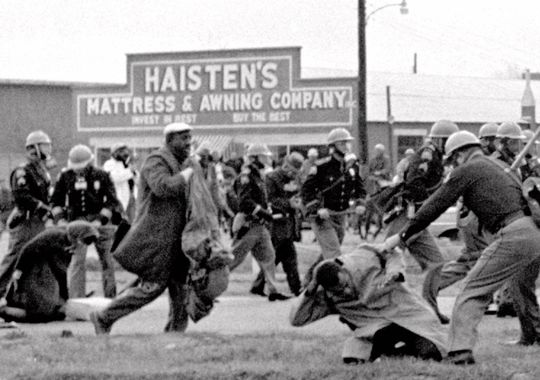 ¶ This week’s Call to Worship:
¶ This week’s Call to Worship:  ¶ Confession. “C.S. Lewis abominated religious triumphalism. In ‘The Four Loves,’ for instance he laments the crimes committed by Christians, summoning us to make ‘full confession . . . of Christendom’s specific contribution to the sum of human cruelty and treachery. Large areas of the World will not hear us till we have publicly disowned much of our past. Why should they? We have shouted the name of Christ and enacted the service of Moloch.’” —Ralph Wood, review of “The Lion, the Witch and the Wardrobe” movie adaptation of Lewis’ “Chronicles of Narnia,” Christian Century
¶ Confession. “C.S. Lewis abominated religious triumphalism. In ‘The Four Loves,’ for instance he laments the crimes committed by Christians, summoning us to make ‘full confession . . . of Christendom’s specific contribution to the sum of human cruelty and treachery. Large areas of the World will not hear us till we have publicly disowned much of our past. Why should they? We have shouted the name of Christ and enacted the service of Moloch.’” —Ralph Wood, review of “The Lion, the Witch and the Wardrobe” movie adaptation of Lewis’ “Chronicles of Narnia,” Christian Century ¶ Sweet news. Random House announced recently it will publish three new “Dr. Seuss” books based on materials found in 2013 by the good doctor’s widow and his long-time secretary while cleaning his office space. The author, whose real name was Theodore “Ted” Seuss Geisel, died in 1991 at the age of 87. First up, scheduled for this July, is What Pet Should I Get. My personal favorite Seuss tale is
¶ Sweet news. Random House announced recently it will publish three new “Dr. Seuss” books based on materials found in 2013 by the good doctor’s widow and his long-time secretary while cleaning his office space. The author, whose real name was Theodore “Ted” Seuss Geisel, died in 1991 at the age of 87. First up, scheduled for this July, is What Pet Should I Get. My personal favorite Seuss tale is 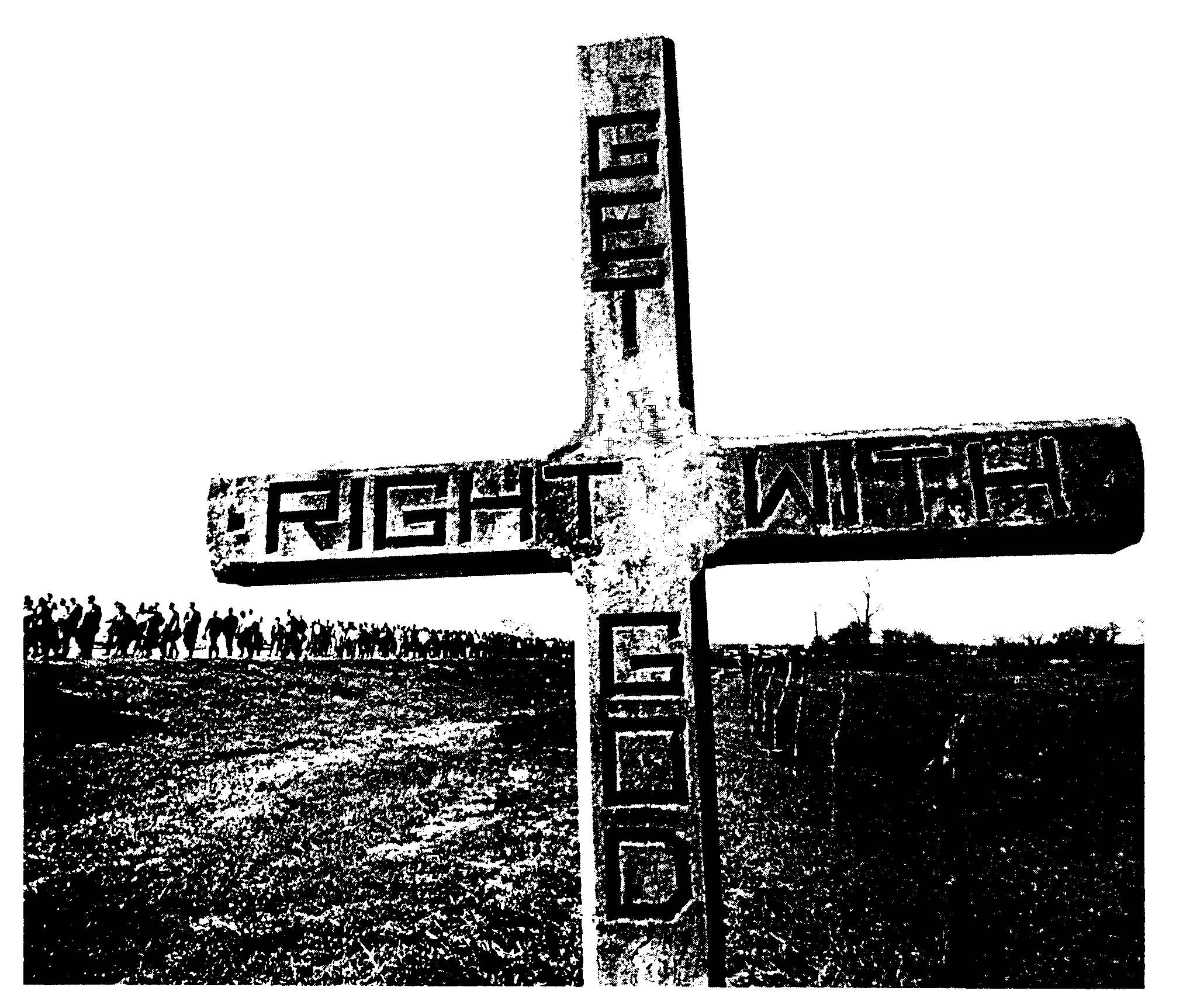 ¶ Altar call. Conservatives are exactly right, of course, to ask liberals about the integrity of moral posture shorn of personal risk.
¶ Altar call. Conservatives are exactly right, of course, to ask liberals about the integrity of moral posture shorn of personal risk.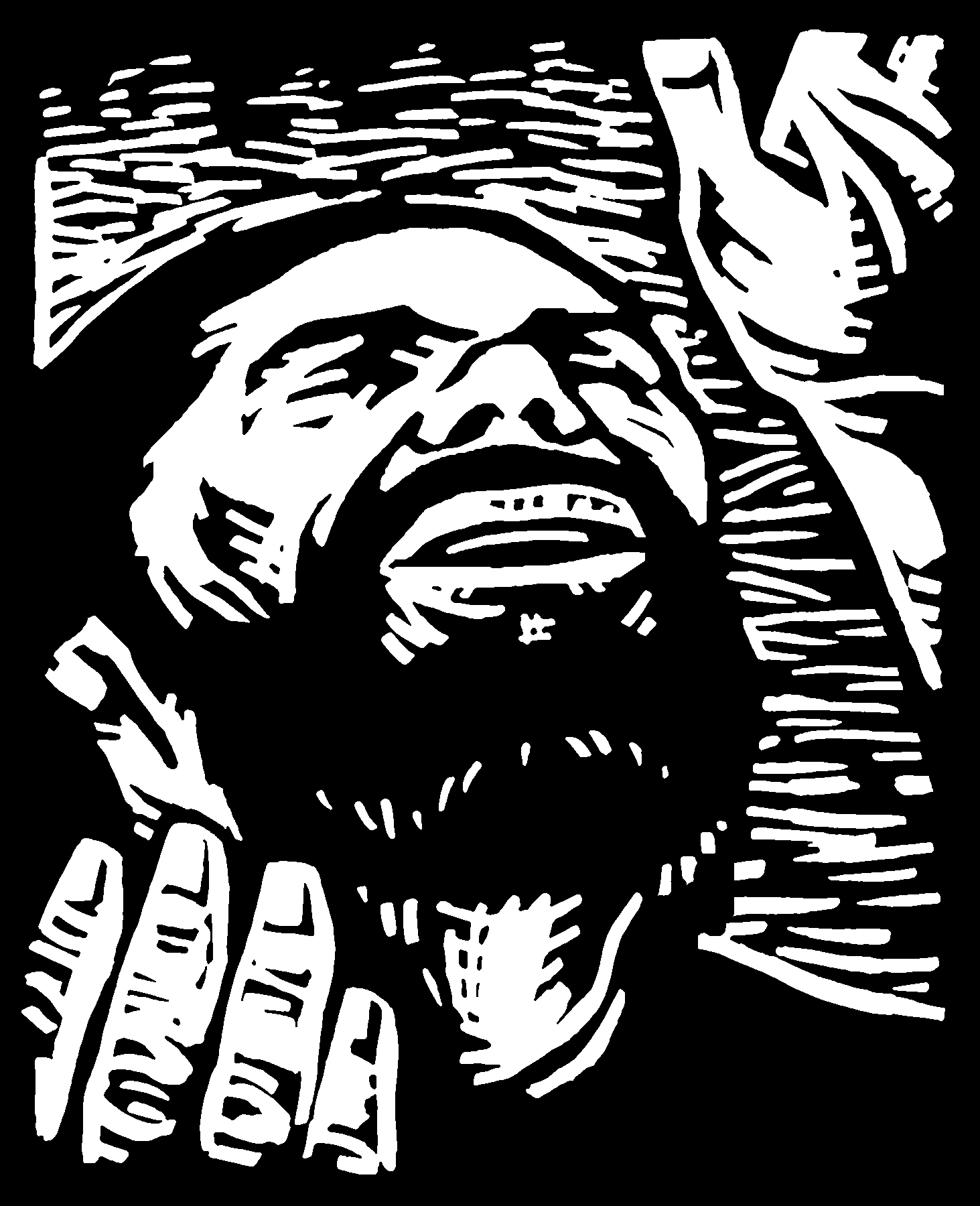 ¶ Benediction. “In the face of death, live humanly. In the middle of chaos, celebrate the Word. Amidst babel, speak the truth. Confront the noise and verbiage and falsehood of death with the truth and potency and efficacy of the Word of God. Know the Word, teach the Word, preach the Word, defend the Word, incarnate the Word, do the Word, live the Word. And more than that, in the Word of God, expose death and all death's works and wiles, rebuke lies, cast out demons, exorcise, cleanse the possessed, raise those who are dead in mind and conscience.” —William Stringfellow, An Ethic for Christians and Other Aliens in a Strange Land
¶ Benediction. “In the face of death, live humanly. In the middle of chaos, celebrate the Word. Amidst babel, speak the truth. Confront the noise and verbiage and falsehood of death with the truth and potency and efficacy of the Word of God. Know the Word, teach the Word, preach the Word, defend the Word, incarnate the Word, do the Word, live the Word. And more than that, in the Word of God, expose death and all death's works and wiles, rebuke lies, cast out demons, exorcise, cleanse the possessed, raise those who are dead in mind and conscience.” —William Stringfellow, An Ethic for Christians and Other Aliens in a Strange Land ¶ Lenten invocation. “I am the vessel. The draught is God’s. And God is the thirsty one.” — former United Nations General Secretary Dag Hammarskjöld in Markings, his personal journal, posthumously published, now considered a classic of spiritual devotion
¶ Lenten invocation. “I am the vessel. The draught is God’s. And God is the thirsty one.” — former United Nations General Secretary Dag Hammarskjöld in Markings, his personal journal, posthumously published, now considered a classic of spiritual devotion Oscar for short documentaries. “The suicide rate among veterans is staggering and beyond heartbreaking. About 22 veterans kill themselves every day, and this has been going on for years. It used to be that the suicide rate for civilian men the same age was higher than the rate for veterans, but that’s changed.” —film director Ellen Goosenberg Kent
Oscar for short documentaries. “The suicide rate among veterans is staggering and beyond heartbreaking. About 22 veterans kill themselves every day, and this has been going on for years. It used to be that the suicide rate for civilian men the same age was higher than the rate for veterans, but that’s changed.” —film director Ellen Goosenberg Kent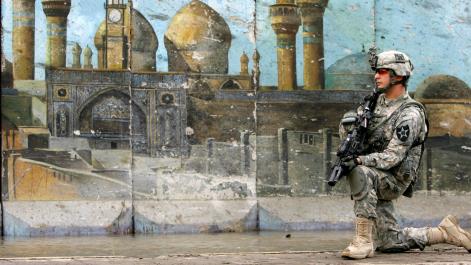 ¶ "The American people and the governing class have accepted that war has become a permanent condition. Protracted war has become a widely accepted part of our politics." — retired Army Colonel Andrew J. Bacevich, quoted in “Death toll in Afghan war nears 1,000,” by Craig Whitlock, Greg Jaffe and Julie Tate, Washington Post. Bacevich’s several books are among the best writing on this topic.
¶ "The American people and the governing class have accepted that war has become a permanent condition. Protracted war has become a widely accepted part of our politics." — retired Army Colonel Andrew J. Bacevich, quoted in “Death toll in Afghan war nears 1,000,” by Craig Whitlock, Greg Jaffe and Julie Tate, Washington Post. Bacevich’s several books are among the best writing on this topic. ¶ Obama Administration officials no longer use the phrase “War on Terror.” The President prefers “Overseas Contingency Operation.” Another phrase is simply “the long war,” which since 2001 has its own designated service medal (at right), given to military members who serve a tour of duty (30 consecutive days or 60 non-consecutive days) in a designated anti-terrorism operation. The duration requirement is waived for those wounded or killed in such duty.
¶ Obama Administration officials no longer use the phrase “War on Terror.” The President prefers “Overseas Contingency Operation.” Another phrase is simply “the long war,” which since 2001 has its own designated service medal (at right), given to military members who serve a tour of duty (30 consecutive days or 60 non-consecutive days) in a designated anti-terrorism operation. The duration requirement is waived for those wounded or killed in such duty. ¶ Last week the United Nations’ Mission in Afghanistan’s annual report revealed that civilian casualties in the country increased 22% in 2014. The 10,548 casualty figure was higher than any year since record-keeping began in 2009. Of that number, 3,699 were killed. The number of women and children wounded or killed also reached a new record.
¶ Last week the United Nations’ Mission in Afghanistan’s annual report revealed that civilian casualties in the country increased 22% in 2014. The 10,548 casualty figure was higher than any year since record-keeping began in 2009. Of that number, 3,699 were killed. The number of women and children wounded or killed also reached a new record.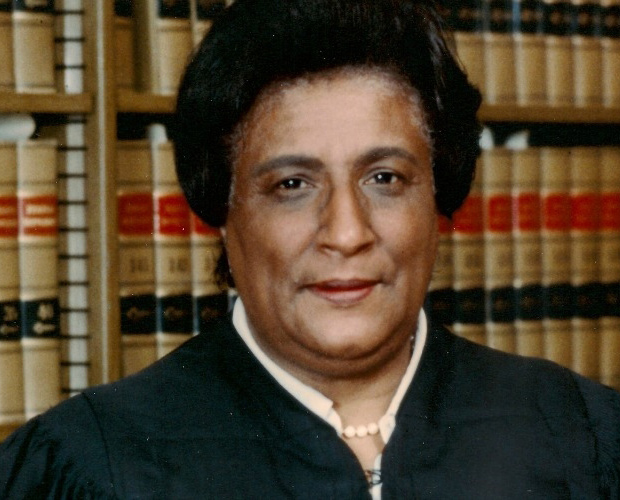 ¶ Black History Month profile. You may not know her name, but you have been affected by the legal battles she won and the precedents she set that helped shape civil rights, women’s rights and human rights. A brilliant lawyer and distinguished federal judge for over forty years, Constance Baker Motley (1921-2005) quietly helped change the course of American history. She is one of many unsung civil rights heroines who waded into the Big Muddy of American racism, but whose name today remains relatively unknown. —Marta Daniels, “
¶ Black History Month profile. You may not know her name, but you have been affected by the legal battles she won and the precedents she set that helped shape civil rights, women’s rights and human rights. A brilliant lawyer and distinguished federal judge for over forty years, Constance Baker Motley (1921-2005) quietly helped change the course of American history. She is one of many unsung civil rights heroines who waded into the Big Muddy of American racism, but whose name today remains relatively unknown. —Marta Daniels, “ Featured on the prayer&politiks site this week:
Featured on the prayer&politiks site this week: